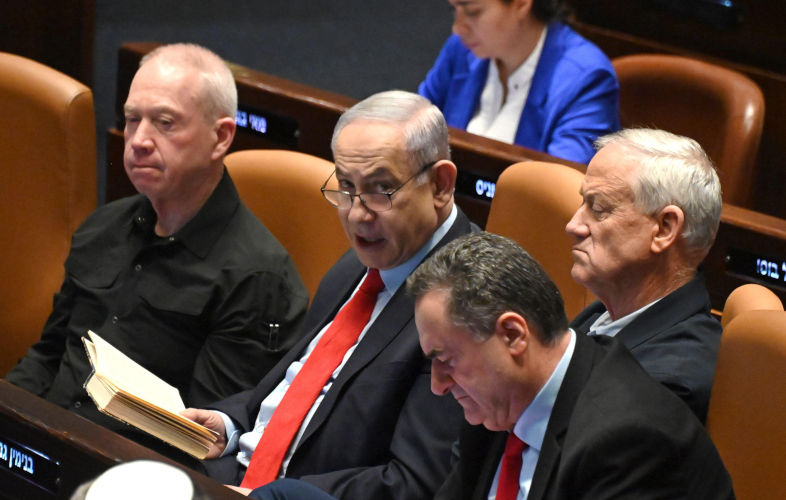Australia and the ICC arrest warrants
November 28, 2024
If Australia is to have any influence at all in resolving the horrendous carnage now taking place in the Middle East it needs to demonstrate that it acts independently of American pressure. The politicians who lament the fraying of our ties with Israel seem totally unconcerned about the impact of our position on countries far more significant to Australia, such as Indonesia and Malaysia, whose support for Palestine recognition goes far further than anything supported by the Albanese government.
There are three claims that underline the opposition to accepting the International Criminal Court’s issuing of warrants for Israeli leaders which need be answered.
We should support Israel because it is a democracy: Both the World Population Review and the Economist Democracy Index rate Israel—like the United States—as a “flawed democracy”. However this only refers to the internationally recognised boundaries of Israel. If we consider the de facto control of Gaza and the West Bank, where Palestinians have none of the rights of Israeli citizenship, it becomes impossible to maintain the argument.
The claims for Israel’s democracy rest on both ignoring the occupied territories—which some Israeli politicians claim as part of Greater Israel—but also skirt over the inconvenient fact that until the current war there were mass protests against attempts by the Netanyahu government to curtail judicial review, which millions of Israelis saw as an attack on basic democratic rights.
A democracy can hold wrong doers to account: Yes, Israel does have more processes than its neighbouring countries to do this, although the unwillingness of the authorities to police gross abuses by West Bank settlers suggests these methods are defective. But more importantly, if we assume democracy means majority rule there are many historical examples where deeply authoritarian governments have come to power through what appear to be democratic elections. A current example would be Victor Orban’s Hungary—not surprisingly a staunch ally of Israel—but reflect on the United States which claimed to be the world’s leading democracy throughout the twentieth century, even as African-Americans were effectively disenfranchised across the South until the late 1960s. And it took intervention by the UN Human Rights Committee to force decriminalisation of homosexuality in Tasmania.
We should support the US position on Israel: Leading Opposition figures, in particular Simon Birmingham and Sussan Ley—both seen as moderate Liberals—have consistently attacked the Albanese government for not voting with the United States to oppose all motions supportive of Palestine in the United Nations. Given that we have voted alongside such apparently well-known supporters of terrorism as Britain, Canada and France, this is a ridiculous argument. Carried to its logical extreme Australia could close down its diplomatic service and outsource it to Washington. But there is a more serious point if Australia is to have any influence at all in resolving the horrendous carnage now taking place in the Middle East it need to demonstrate that it acts independently of American pressure. The politicians who lament the fraying of our ties with Israel seem totally unconcerned about the impact of our position on countries far more significant to Australia, such as Indonesia and Malaysia, whose support for Palestine recognition goes far further than anything supported by the Albanese government.
Yes, some supporters of Palestine have engaged in anti-Semitic behaviour and there is a strong case to be made that police in both NSW and Victoria have not moved as swiftly and decisively as they could in these instances. But to combat anti-Semitism requites us to be clear sighted that criticism of Israel, however strong, is not in itself anti-Semitic. The rulings of the ICC that have led to the Israeli Prime Minister and Defence Minister indicted for war crimes is based on very clear evidence about the devastation their war is wreaking on the inhabitants of Gaza.
The Australian government is itself caught in a bind: it continues to talk of a two-state solution when the Israeli Knesset has recently voted overwhelmingly against this and support for the idea is declining among Palestinians. But as Gareth Evans has consistently argued, there is value in recognising Palestine as a state if only to signal that Australia understands the equal rights of Israelis and Palestinians to recognition, dignity and peace.
Over the past year Australian streets have been filled with Palestinian and Israel flags, as two communities mobilise against each other. Neither side seems capable of producing someone like Nelson Mandela, able to move beyond immediate grievances to find a long-term solution that ends both terror attacks and massive retaliation. Israel may well succeed in killing most of the current leadership of Hamas and Hezbollah. The one prediction we can make is that in doing so they are laying the foundations for a new generation of Palestinians who have been offered no alternative to violence as a way of seeking recognition.

